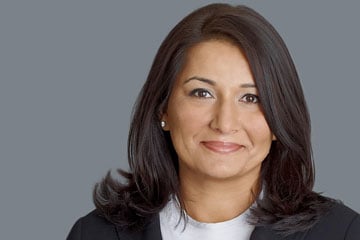
Osgoode Hall Law School’s Investor Protection Clinic has received an $80,000 cy-près award from a class action settlement to put toward operational costs in order to remain open throughout the summer.

Osgoode Hall Law School’s Investor Protection Clinic has received an $80,000 cy-près award from a class action settlement that will help the clinic remain open throughout the summer.
The injection of cash was a “very welcome surprise,” according to the clinic’s academic director, Poonam Puri.
The Toronto-based clinic will be putting the court-directed award toward hiring four summer students so client files can remain open past the academic term. Neither the clinic nor the law school were involved in the class action directly (a settlement in the shareholder proceeding involving Barkerville Gold Mines Ltd.). Rather, the clinic received the money as a result of a decision made by Justice Paul Perell of the Ontario Superior Court of Justice.
“When the class members in a class action proceeding can’t be easily identified, or it wold be uneconomical to distribute the funds, a court has discretion to grant a cy-prés award so that you're allocating the funds as close as possible through other means that are in the best interests of the class,” says Puri.
This clinic aids people who believe their investments have been mishandled and cannot afford a lawyer. The first of its kind in Canada, the clinic was founded by Osgoode Hall Law School and FAIR Canada (Canadian Foundation for the Advancement of Investor Rights) and launched in September 2017. It was initially funded by close to $100,000 in seed money from the Law Foundation of Ontario, says Puri.
“It really allowed us to put the clinic together and launch. But the funding is only for a limited period of time and it’s only seed funding, not operational funding,” she says. “We are thinking of ways to ensure sustainability, to make sure we can provide this service for the community, not just for a limited period of time, but for the foreseeable future.”
Counsel for the plaintiff in the case where the cy-près award came from, Andrew Morganti, of Morganti & Co., contacted the clinic to see if it would be interested in receiving the award on behalf of the settlement.
In September, 10 more students, in addition to the four hired during the summer, will be joining the clinic for school credit — a total of 14 students (there were 12 in the last session). Also, lawyers from six business law firms assist the students by sharing their expertise and oversee particular files.
Since the four students will be able to work at the clinic during the summer, Puri says that this is advantageous because they’ll have more time to understand and learn the files, know what the procedures are and as a result, will be able to help the upcoming group of students joining them in the fall, rather than everyone starting from scratch.
Puri says eventually she’d like the clinic to have an in-house lawyer.
“The students are loving the program. They’re really loving the opportunity to be able to engage directly with people who have been harmed or who believe that they’ve been harmed, and help them navigate forward,” she says.
Editor's note: Story updated April 17 to reflect edit to quote from Poonam Puri.